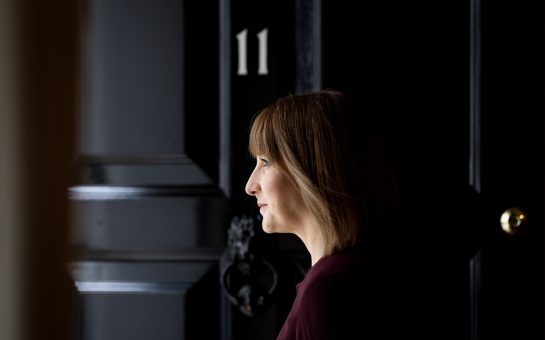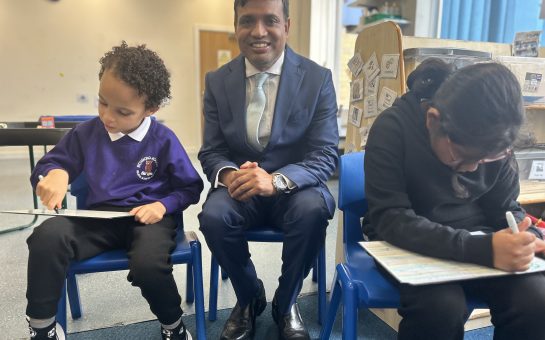As the COP21 Climate Change Summit comes to an end in Paris and the global agreement due to be agreed today, we are left wondering how this will filter down to Greater Manchester.
As part of tackling climate change in the region, the signing of a new climate change pledge last week by faith, civic and business leaders across Greater Manchester goes some way to achieving this.
The pledge reads that ‘we recognise that immediate and significant action on climate change is needed to secure a safe and habitable world both today and for future generations’.
‘We will substantially address our carbon footprints and we will use our influence to make acting on climate change part of the Greater Manchester way of life to create a better city-region for everyone’.
Among those who signed the pledge are interim Mayor Tony Lloyd and Chief Executive of the Greater Manchester Chamber of Commerce, Clive Memmott and Leader of Stockport Council, Councillor Sue Derbyshire.
Mr Lloyd who is part of the Compact of Mayors, the world’s largest coalition of mayors and city officials attended the Paris summit in its final week.
He said: “We all have a responsibility to tackle climate change.
“Leaders from across Greater Manchester have made a firm commitment to work with me and the Greater Manchester CA and local people to change the way we go about our day-to-day lives to create a safe and secure planet for today and future generations.”
Through appearances at the Climate Summit for Local Leaders, he is able to add to the voices of local leaders and ensure that city efforts like Greater Manchester’s are recognised during the international negotiation process.
Ali Abbas, Co-ordinator at Manchester’s Friends of the Earth, said: “I think that pledges are helpful because they allow people to see that businesses, faith organisations and local authorities recognise the importance of climate change.
“The flip side to that is it is easy to make a pledge but it is much more difficult to deliver on it.”
The climate change target for 2020 across Greater Manchester remains to cut emission to 48% of their 1990 levels.
To achieve this target a new Climate Change and Low Emissions Plan across Greater Manchester is coming into force.
Hopes are that this plan will provide a detailed pathway to both the 2020 targets and beyond.
Currently, we are off target. Despite emissions reducing around 24% on the 1990 baseline between 2012-2013, there will still need to be a a 5% reduction every year from 2012-20 to achieve the 48% target.
To achieve this, Greater Manchester has to identify at least 1 million tonnes of further carbon reduction actions to meet the overall goal.
Groups such as Manchester: A Certain Future monitor the progress and say the targets still remain achievable.
They say that for this to happen, more people, organisations and companies need to get involved and start making those decisions to change the way they work, the amount of energy they use and how they get around.
Dr Abbas said that key to achieving our target is to consider the carbon impact of every decision similar to how decisions on financial impacts and the impact of a decision on people are often made.
“If you also consider the carbon impact then that way they can start making informed decisions and start focusing on the ones that actually bring the amount of carbon emissions down,” he added.
Reiterating this point, councillor Derbyshire said: “I think it will take all of us working together, from large GM led schemes like District Heating Networks to individuals changing their behaviour in small ways.”
She described it as a way for individuals and groups to start thinking about and making a commitment to changing their approach and making Carbon Reduction part of day-to-day life.
Day-to-day lifestyle changes don’t need to be big, switching to LED lighting, not leaving lights and heating on unnecessarily and recycling go a long way to tackling the issue.
People can do this through projects such as the Carbon Literacy Project which provides access to learning on climate change for people who live, work and study in Greater Manchester.
Reducing energy through insulating properties, travel around by walking or cycling and buying products that are locally made all help in considering your carbon footprint.
Trialled in Stockport in 2014 as one of the first of its kind in the country was the ‘Power Saver Challenge’ resulting in residents reducing their energy usage by 10% within three months (equating to £59 on the average annual electricity bill).
With the summit in Paris set to deliver a global deal on climate change, Dr Abbas said: “The summit in Paris is to get a global deal on climate change and that will help set the framework and the level of ambition we need to meet locally.
“I think the answers are all out there, it is just a matter of having the will and the focus to make that happen.
“The proof in the pudding would be if the organisations actually do make the carbon cuts that they have pledged to make.”
Through the involvement of faith leaders, it is hoped the word can be spread and along with organisations having a role to play, all the small changes and savings will mount up to make a change.
Despite government cuts and an increasing difficulty to receive funding from central government, Greater Manchester have established and continue to develop the promotion of a low carbon efficient future infrastructure.
Talking on what business can do in the era of government cuts, Mr Memmott said: “Government cuts will have an impact particularly on the future supply of the right energy.
“However, the major determinate is changing our behaviours. For business it’s vital we do more with less to maintain/improve profitability and make our organisations more sustainable.
“It’s in all our interests to use resources more efficiently to save money and consume less.
“It’s primarily about changes in behaviour that save money and also impact favourably on climate change.”
The Low Carbon Hub, part of the Greater Manchester Combined Authority are working across the world with Japan, Italy and many other countries via European and Internationally funded projects to reduce our carbon footprint.
Greater Manchester’s businesses and organisations are encouraged to make their own pledges through schemes such as green growth.
Work across Greater Manchester with businesses and schemes such as ‘Green Growth’ has produced a reduction of 1m tonnes of Carbon saving £270m for those businesses.
Also encouraging is that the low carbon, environmental goods and services sector in Greater Manchester is the 3rd largest in the UK and has annual sales of over £5 billion.
Mr Memmott said: “For this to continue, it is vital that we do more with less to maintain and improve profitability and make our organisations more sustainable.
“The pledge is a way for us all to commit to changing our behaviours – collectively applied simple improvements can really make a difference.”
Image courtesy of Nattu, with thanks.



